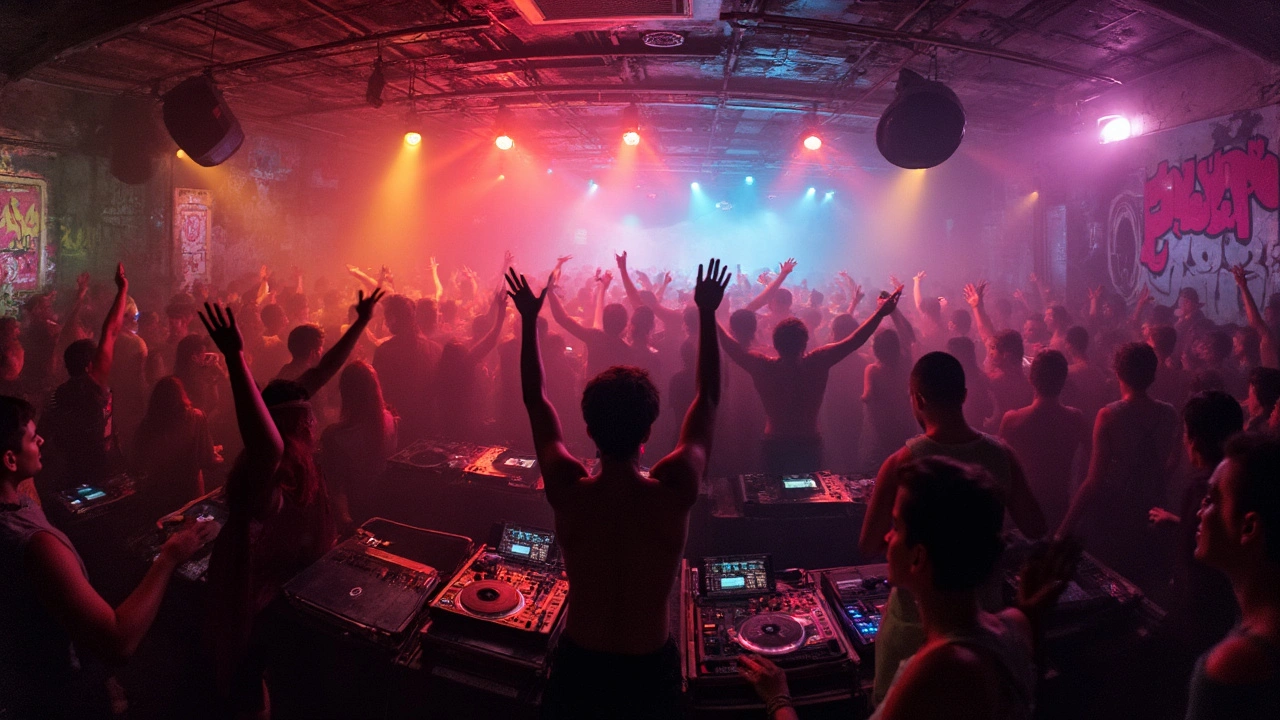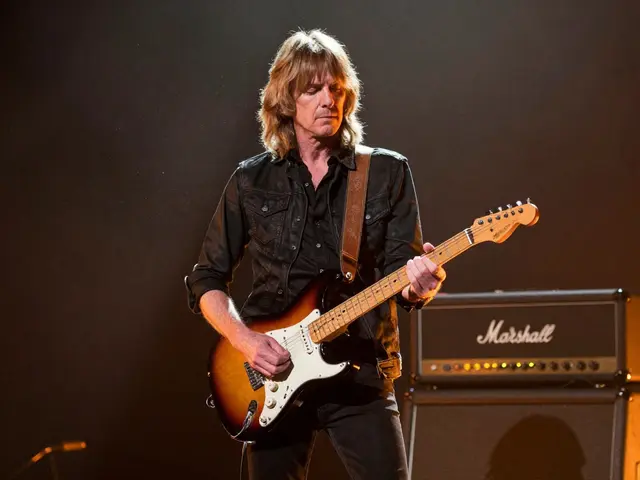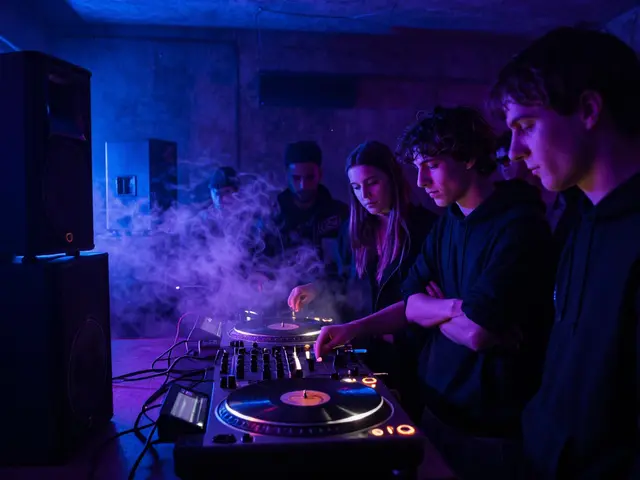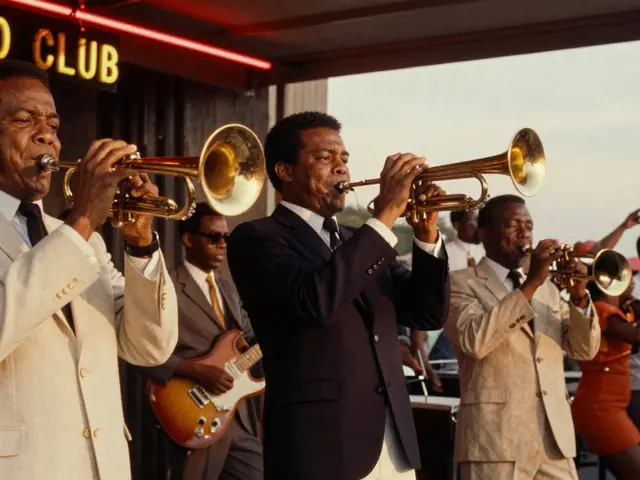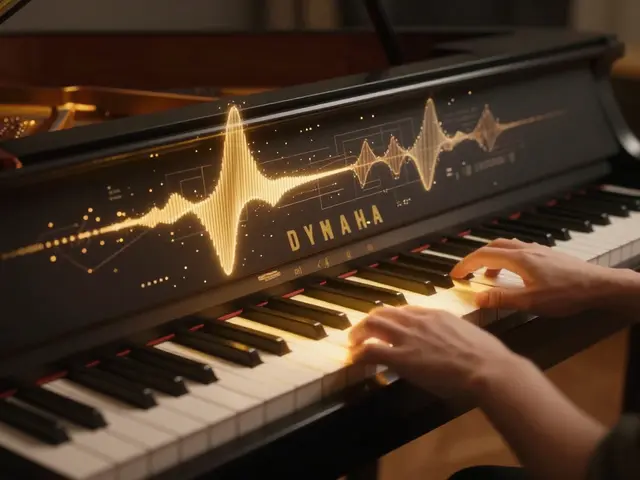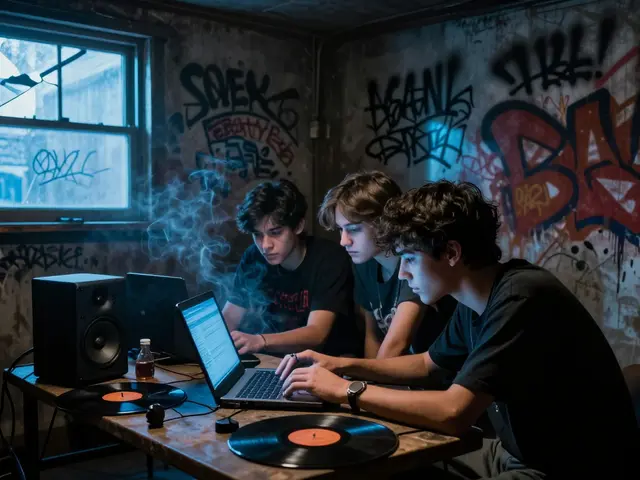Electronic music is everywhere. Whether it's the beat that gets your heart pumping during a workout or the ambient background music easing your mind after a long day, it's become the soundtrack of modern life. But how did we get here?
Originally, electronic music was the domain of avant-garde composers and the underground rave scene. It was experimental and niche. But thanks to advances in technology, what once required rooms filled with expensive equipment can now be produced on a laptop. This democratization has supercharged its spread across genres and borders.
Ever wondered why so many ads use electronic music? Simple—it's engaging. Its rhythms and beats capture attention and can evoke powerful emotions. But the real magic is how it adapts and blends with everything, from pop to film scores, reflecting technological shifts and cultural trends in real-time.
- The Origins of Electronic Music
- Technological Advancements and Impact
- Key Artists and Influences
- Electronic Music in Popular Culture
- Future Trends and Innovations
The Origins of Electronic Music
Back in the early 1900s, before electronic music became the soundtrack of our lives, it started as a quirky experiment in sound. Pioneer artists and inventors were tinkering with new technologies, trying to find fresh ways to create music. It all began with instruments like the theremin and the ondes Martenot, which used electricity to produce sound. These odd-sounding gadgets paved the way for what's become a massive movement today.
Fast forward to the 1950s and 60s, the scene began to pick up speed. European and American studios started to push the boundaries, creating new sounds never heard before. In 1958, the Columbia-Princeton Electronic Music Center in New York became a hub for like-minded composers. Electronic music was still seen as experimental, but it was starting to enter the mainstream consciousness.
The Synthesizer Revolution
Then came the synthesizer. The late 1960s saw the invention of the Moog synthesizer, a game-changer that made electronic music more accessible. Artists could now create complex arrangements and sounds with relatively compact machinery. The Beatles and Pink Floyd were some of the first mainstream bands to experiment with synthesizers, setting the stage for future exploration.
Throughout the 1970s, electronic music began to take varied forms. Influential groups like Kraftwerk pushed it further, combining electronic beats with pop songwriting. Their work not only had an impact on music but also influenced broader pop culture, paving the road for genres like techno and house music.
The Rise of Computer Music
By the 1980s and 90s, the digital era transformed electronic music again. Computers and sampling technology made it easier for aspiring artists to experiment without the need for expensive equipment. This era saw the birth of iconic sounds in genres as diverse as hip-hop and trance, reaching more people than ever before.
So, next time you tap your foot to an electronic beat, think about how far it's come from those early experimental days to shaping an essential part of our daily lives.
Technological Advancements and Impact
The rise of electronic music can be credited to rapid technological advancements that have transformed music-making into a more accessible art form. Back in the day, creating electronic tunes required walls of synths and a hefty budget. Now, it's as simple as booting up your laptop.
The Rise of Music Software
One of the game-changers has been the development of Digital Audio Workstations (DAWs) like Ableton Live, Logic Pro, and FL Studio. These software tools have empowered creators to produce, edit, and mix tracks without the need for a full-fledged studio. It’s like having a whole orchestra in your backpack!
Hardware That Changed the Game
The music scene also witnessed the introduction of compact and affordable hardware, like MIDI controllers and synths. Devices from companies like Moog and Roland brought unique soundmaking capabilities right to musicians' fingertips, literally sparking a revolution.
Impact on Music Production
Thanks to these innovations, collaboration among artists has soared. Musicians from different continents can now work together seamlessly, sharing files and ideas instantaneously. The results? Cross-genre and cross-cultural influences that keep electronic music fresh and exciting.
Statistics of the Digital Shift
If you're curious about just how widespread this impact is, check this out:
| Year | Global Electronic Music Market (in billion USD) |
|---|---|
| 2020 | 7.4 |
| 2023 | 10.2 |
These numbers show more than just dollars—they reflect the growing influence and integration of electronic music into mainstream culture.
So, next time you find yourself nodding along to a catchy beat, remember it's not just the artist at work—it's the power of technology fueling the soundtrack of today's digital era.
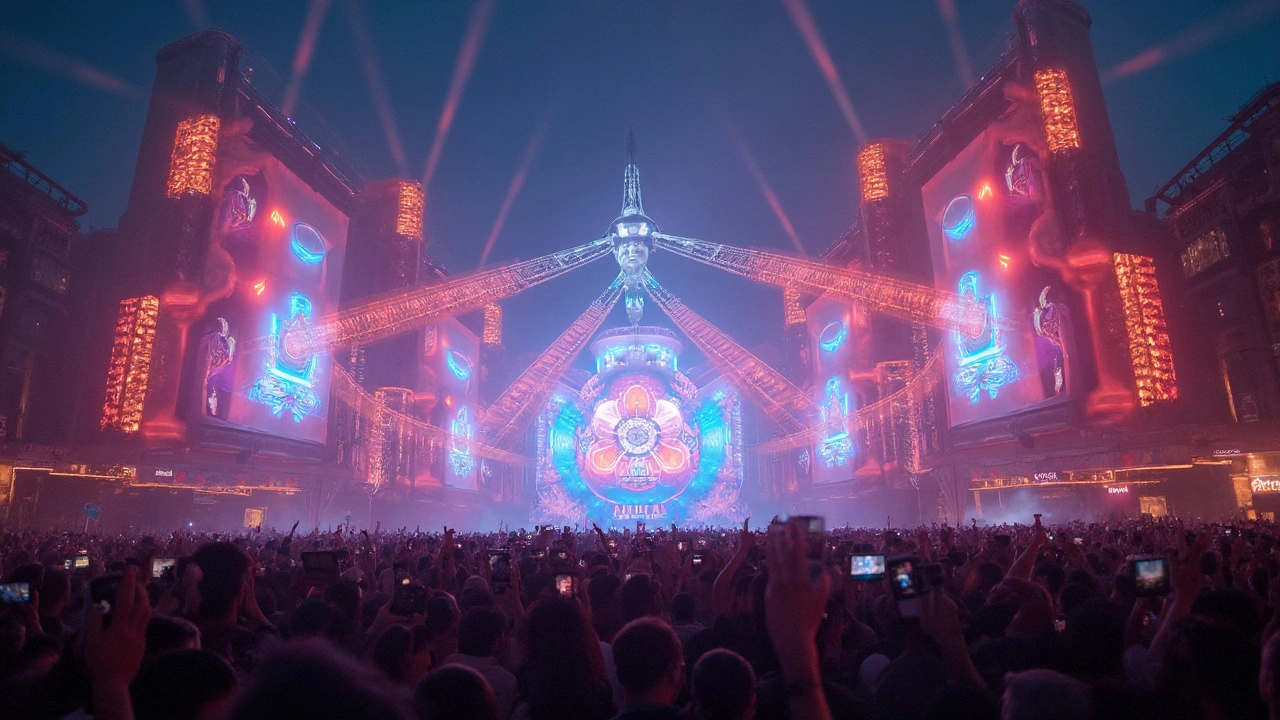
Key Artists and Influences
In the world of electronic music, a few trailblazers have shaped the soundscape we know today. Figures like Kraftwerk and Daft Punk are more than just influential musicians; they’re legends who transformed the digital era through sound.
Classic Innovators
Let’s kick things off with Kraftwerk, the German band that embraced technology like few others in the 1970s. They took synthesizers out of the lab and onto the stage, setting the blueprint for countless electronic music acts to follow. Their album ‘Autobahn’ is often cited as a turning point for the genre.
"We are the robots!" – Kraftwerk’s iconic declaration, hinting at their fusion of man and technology.
Modern Icons
Fast forward to the late '90s and early 2000s, and we find Daft Punk, the duo that wore helmets and turned every live set into an audio-visual phenomenon. Their album ‘Discovery’ remains a benchmark in electronic music history.
Pushing Boundaries
More recently, artists like Skrillex and Deadmau5 have pushed the genre forward, turning dubstep into a global sensation and creating expansive soundscapes that defy conventional genres. At the same time, producers like Diplo and Calvin Harris are blending electronic sounds with mainstream pop, crafting hits that dominate charts worldwide.
Have a look at how vast and varied the genre has become:
| Artist | Sub-Genre | Notable Track |
|---|---|---|
| Kraftwerk | Krautrock | Autobahn |
| Daft Punk | House | One More Time |
| Skrillex | Dubstep | Scary Monsters and Nice Sprites |
The Future of Sound
As we look to the future, the marriage of technology and music continues to evolve with artists like Grimes using AI in their compositions and virtual reality becoming a new stage. The electronic music scene never stands still, and that's the beauty—there's always something new around the corner.
Electronic Music in Popular Culture
When we think about mainstream media today, we just can't ignore the massive role electronic music plays in shaping popular culture. It's like the unseen but always-present player in movies, commercials, fashion shows, and even video games. It's this all-encompassing player that gives our digital lives a beat, a rhythm we can vibe to.
Take movies, for example. Films like 'Tron: Legacy' and 'Drive' have iconic soundtracks that feature heavily electronic compositions. These movies wouldn't have the same gripping atmospheres without those heart-thumping, synthetic tunes. It's no wonder directors have been turning to electronic music producers and DJs to help sculpt a film's emotional landscape.
TV Shows and Commercials
TV shows are in on it too! Look at series like 'Stranger Things'—the retro synth-heavy soundtrack almost becomes a character in itself. Brands aren't missing out either. From flashy sports cars to the latest smartphones, electronic music adds that cool, modern flair that they want to associate with their products.
Festival Culture
Now, let’s chat about festivals. You’ve probably heard of Coachella, Tomorrowland, or Ultra Music Festival. These gatherings are less about the headliners and more about the mind-blowing audio-visual experiences they provide. The attendees aren't just fans; they're part of a worldwide electronic music community.
Video Games
And then there’s gaming. Video games like 'Cyberpunk 2077' offer immersive experiences that rely heavily on electronic soundtracks to transport players to other worlds. This isn't just about background music—it's crucial for the ambiance and engagement, enhancing the overall gaming experience.
Stats are intriguing too! Check out this data showing how electronic music is integrated across various media:
| Media Type | Percentage of Electronic Music Use |
|---|---|
| Movies | 60% |
| TV Shows | 45% |
| Commercials | 70% |
| Video Games | 80% |
With electronic music's influence seeping into every nook of popular culture, it’s safe to say we've entered the digital era where beats and synths now set the tone for a whole generation.
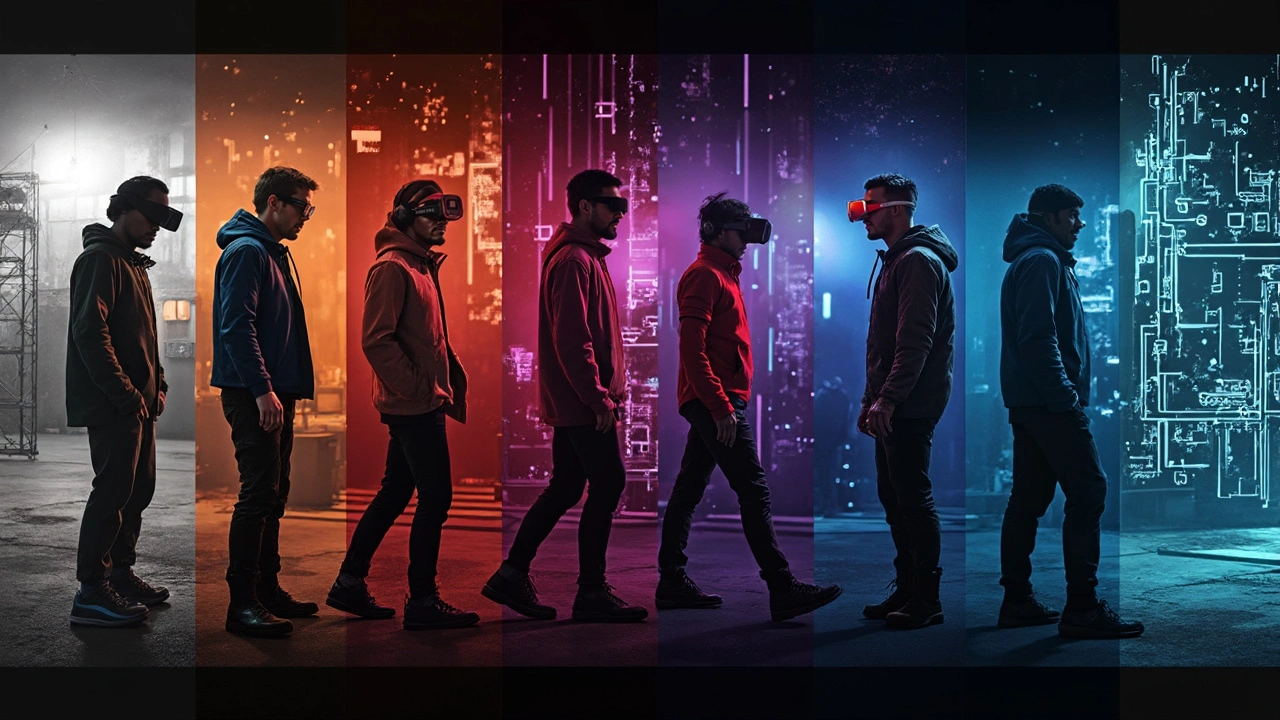
Future Trends and Innovations
In the world of electronic music, change is the only constant. As technology keeps evolving at a breakneck pace, so too does the music that rides on its back. So, what's on the horizon for this ever-pulsating genre?
AI's Role in Music Creation
Artificial Intelligence is becoming instrumental in crafting fresh tunes. We're seeing AI-designed tracks make waves, offering musicians an extra layer of creativity. The ability to analyze existing compositions and suggest alterations means artists can explore new sounds without starting from scratch.
Virtual Reality and Concert Experiences
Imagine attending a concert without leaving your living room. Virtual reality is blurring the lines between digital and physical realms, transforming how we experience live music. People are gearing up for more immersive concerts where you can 'move' through dazzling virtual worlds, all synced to electronic beats.
Sustainable Music Production
With the growing concern over climate change, the electronic music scene is also tuning into sustainability. Artists are exploring green solutions, such as eco-friendly equipment, renewable energy sources for events, and even digital distributions that minimize carbon footprints.
Rise of NFTs and Digital Ownership
Non-fungible tokens, or NFTs, are changing the playing field for how music is bought and sold. Fans can now own unique digital art or exclusive tracks as an NFT. This not only adds value for the fan but also gives artists a new revenue stream.
Here's a quick glimpse of some key innovations:
- AI-powered music generation tools - Enhance creativity and efficiency.
- VR-driven concerts - Offer immersive, interactive experiences.
- Sustainable practices - Address environmental impacts in production and events.
- NFT sales - Create new pathways for music ownership and monetization.
These trends are just the tip of the iceberg. As technology and music continue to dance together, who knows what electronic sounds we'll be vibing to next?

